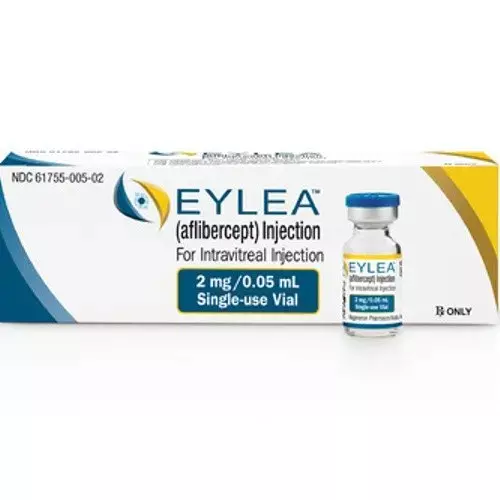- Home
- Medical news & Guidelines
- Anesthesiology
- Cardiology and CTVS
- Critical Care
- Dentistry
- Dermatology
- Diabetes and Endocrinology
- ENT
- Gastroenterology
- Medicine
- Nephrology
- Neurology
- Obstretics-Gynaecology
- Oncology
- Ophthalmology
- Orthopaedics
- Pediatrics-Neonatology
- Psychiatry
- Pulmonology
- Radiology
- Surgery
- Urology
- Laboratory Medicine
- Diet
- Nursing
- Paramedical
- Physiotherapy
- Health news
- Fact Check
- Bone Health Fact Check
- Brain Health Fact Check
- Cancer Related Fact Check
- Child Care Fact Check
- Dental and oral health fact check
- Diabetes and metabolic health fact check
- Diet and Nutrition Fact Check
- Eye and ENT Care Fact Check
- Fitness fact check
- Gut health fact check
- Heart health fact check
- Kidney health fact check
- Medical education fact check
- Men's health fact check
- Respiratory fact check
- Skin and hair care fact check
- Vaccine and Immunization fact check
- Women's health fact check
- AYUSH
- State News
- Andaman and Nicobar Islands
- Andhra Pradesh
- Arunachal Pradesh
- Assam
- Bihar
- Chandigarh
- Chattisgarh
- Dadra and Nagar Haveli
- Daman and Diu
- Delhi
- Goa
- Gujarat
- Haryana
- Himachal Pradesh
- Jammu & Kashmir
- Jharkhand
- Karnataka
- Kerala
- Ladakh
- Lakshadweep
- Madhya Pradesh
- Maharashtra
- Manipur
- Meghalaya
- Mizoram
- Nagaland
- Odisha
- Puducherry
- Punjab
- Rajasthan
- Sikkim
- Tamil Nadu
- Telangana
- Tripura
- Uttar Pradesh
- Uttrakhand
- West Bengal
- Medical Education
- Industry
Aflibercept Improves Contrast sensitivity in Diabetic Macular Edema

Diabetic macular edema (DME) is the most common cause of decreased best-corrected visual acuity (BCVA) and irreversible vision loss, with up to 10% of diabetic patients affected. A recent study suggests that contrast sensitivity (CS) can be improved with aflibercept therapy. The study findings were published in the journal Clinical Ophthalmology on November 11, 2021.
There is a growing body of literature that demonstrates patients with center involving diabetic macular edema (CDME) and diabetic retinopathy suffer from decreased contrast sensitivity (CS) before there are any detectable changes in visual acuity. It is unknown at this time whether the patients that lose CS associated with diabetic macular edema will regain what they have lost once they meet current treatment best-corrected visual acuity (BCVA) recommendations and begin intravitreal treatment.
Therefore, Dr Donald R Nixon and his team conducted a study to evaluate the changes in CS and its association with BCVA and Central Retinal Thickness (CRT) in patients undergoing standard treatment for CDME using aflibercept.
Aflibercept is a vascular endothelial growth factor (VEGF) inhibitor first approved for the treatment of diabetic macular edema (DME) in July 2014 after several large trials showed it was superior to laser photocoagulation in patients with reduced visual acuity.
Dr Donald and his team conducted a single-centre, prospective, open-label, non-controlled evaluation of five aflibercept intravitreal injections for treatment of CDME over 16 weeks. They included a total of 40 eyes from 40 patients with CDME and administered aflibercept every 4 weeks. They assessed the measurements of a central retinal thickness (CRT), best-corrected visual acuity (BCVA), Pelli–Robson (PR) CS, and CamBlobs (CB) CS at 20 weeks post-baseline.
Key findings of the study:
♦ At baseline, the researchers observed that
- CRT was 365 ± 94.6μm with logMAR BCVA 0.25± 0.20.
- CS PR was 1.46± 0.13 logCS compared to the normal population 1.79± 0.10 logCS and
- CS CB was 1.55± 0.16 logCS compared to 1.92± 0.08 logCS in the normal population.
♦ By the end of the study, they found that the CRT was decreased to 289 ± 43.7μm, and the logMAR BCVA improved to 0.18± 0.02.
♦ They also found that the CS PR was 1.52± 0.16 and CS CB was 1.62± 0.16 logCS.
♦ They noted that at the end of the study, 85% of eyes obtained BCVA of 0.3 logMAR or better.
♦ They observed a reduction from a baseline of 82.5% to 57.5% in the number of patients that had a CS.
♦ They noted that the greatest improvement in CS was associated with those patients that had the greatest reduction in CRT.
The authors concluded, "CS impairment in patients with CDME is significant. Although treatment can be associated with improvement, there still remains a group with decreased CS that could impact activities of daily living. Earlier intervention using reduction in CS as a metric may be associated with reduced residual deficit associated with treatment."
For further information:
Medical Dialogues Bureau consists of a team of passionate medical/scientific writers, led by doctors and healthcare researchers. Our team efforts to bring you updated and timely news about the important happenings of the medical and healthcare sector. Our editorial team can be reached at editorial@medicaldialogues.in.
Dr Kamal Kant Kohli-MBBS, DTCD- a chest specialist with more than 30 years of practice and a flair for writing clinical articles, Dr Kamal Kant Kohli joined Medical Dialogues as a Chief Editor of Medical News. Besides writing articles, as an editor, he proofreads and verifies all the medical content published on Medical Dialogues including those coming from journals, studies,medical conferences,guidelines etc. Email: drkohli@medicaldialogues.in. Contact no. 011-43720751


